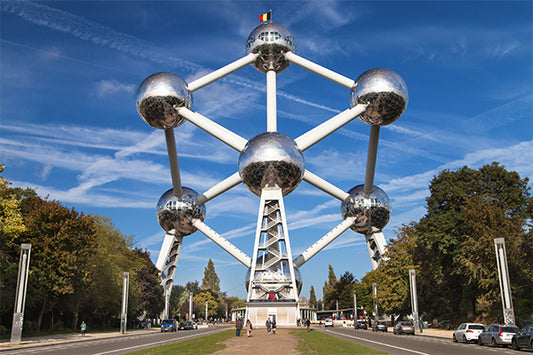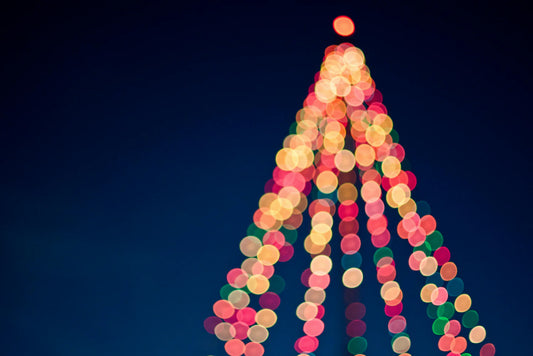May 19, 2023 Magnus Jern Written by Magnus Jern
Can you drink the tap water in Amsterdam? Where does the water come from and how is it treated? Is it safe to drink? What are common tap water issues in Amsterdam? What is the best water filter for Amsterdam and the Netherlands?
In this article we will answer these questions and more. We will also provide some insights to why people that say that “tap water in Amsterdam is perfectly safe to drink” might be wrong.
Where Does The Tap Water in Amsterdam Come From?
Amsterdam’s water supply originates primarily from the Rhine River. This massive river system, one of the longest in Europe, provides ample water for the city. But getting from the Rhine to your faucet involves a significant journey and sophisticated purification processes. Despite reduced pollution through wastewaters from households and industries, the Rhine still carries high burdens of heavy metals and chemicals, e.g. pesticides that affect the drinking water quality of the cities that use the Rhine as a drinking water source.
In the Netherlands, about 5 million people get their drinking water from the Rhine. Gerards Stroomberg, of RIWA, the association that represents the interests of drinking water companies that use the Rhine as a source of water, said “What we see is that the substances we encounter are increasingly difficult to remove. And the quantities are also getting larger.” (Source: Smart Water Magazine)
Waternet, the public utility responsible for water supply in Amsterdam, collects river water from various locations, depending on the water quality and needs.
How is the Tap Water in Amsterdam Treated?
Amsterdam’s tap water goes through an extensive treatment process that ensures it’s safe for consumption. The initial treatment happens at the Loenderveense Plas, where water is purified naturally using biological processes. Sediments settle at the bottom and the clear water on top is further treated.
The clear water is then transported to treatment plants where it undergoes dune infiltration, a unique and natural water treatment process involving percolation through the sands of the Dutch dunes. Here, the water is naturally filtered, eliminating many of the remaining impurities.
Afterward, the water is extracted from wells, aerated to remove iron and methane, and then disinfected using UV light, which kills any remaining bacteria or viruses. Once this process is completed, the water is piped to homes and businesses across Amsterdam.
Chlorine is generally not used for tap water in the Netherlands. This means that there could potentially be bacteria growth (biofilm) in the local pipes but it’s not been identified as an issue in Amsterdam.
Is the Tap Water in Amsterdam Safe to Drink?
Yes, the tap water in Amsterdam is safe to drink and according to some people among the best in Europe. The local water provider Waternet continuously monitors water quality to ensure it meets high safety standards. The Dutch government sets stringent standards for drinking water quality, many of which exceed those set by the World Health Organization.
However, this doesn’t necessarily mean that the tap water is as healthy as it can be. Read more about this below.
What is the Taste of Amsterdam Tap Water?
Amsterdam tap water is usually tasteless, with a slight mineral aftertaste due to the natural minerals present in the water from its source and the dune filtration process. This taste is often appreciated and many people prefer it over bottled water.
What Potential Contaminants May Exist in Amsterdam Tap Water?
The source of the tap water is primarily the Rhine river which is not exactly clean. The tap water is therefore heavily treated and although the tap water is generally safe and highly regulated, some potential contaminants may still exist:
- Microplastics: Like many other cities around the world, microplastics could potentially be present in the water, but the amount is typically negligible and does not pose a health risk.
- Pesticides and pharmaceutical residues: Minute traces of these substances can sometimes make their way into the water, but again, the concentrations are far below the threshold for any health concern.
- Nitrate: Although generally below the saftety limit tap water in Amsterdam and the Netherlands in general has reported to contain nitrate levels higher than average for Europe due to extensive use of fertilizers.
- Natural minerals: The presence of natural minerals like calcium and magnesium is normal and can actually contribute to your daily intake of these important nutrients.
- Pharmaceuticals: The chemical industry along the Rhine river releases a lot of pharmaceuticals and other chemicals. Although these are monitored there may be pharmaceuticals and other contaminants at lower levels.
- Heavy metals: Heavy metals such as mercury and lead are extensively monitored but some old buildings may still have lead pipes that contaminate the local tap water.
A high quality water filter such as EcoPro or PitcherPro by TAPP Water will protect you and your family from these contaminants entering your drinking water.
Read more about the issues of nitrate and nitrite in the Netherlands.
Bottled Water in Amsterdam
While bottled water is widely available in Amsterdam, it’s not necessary to resort to it for drinking. The tap water quality is excellent and using it instead of bottled water is a more sustainable and cost-effective option. According to the Dutch Nutrition Centre, tap water is between 150 to 500 times cheaper than bottled water. Moreover, the environmental impact of plastic waste from bottled water is considerable.
Bottled water is not healthier than tap water or filtered tap water.
Best Water Filter for Amsterdam
Whether you need a water filter or not is a personal choice.

An affordable and high quality activated carbon filter, like EcoPro or PitcherPro by Tappwater are among the best water filters for Amsterdam. These types of filters can help remove any residual tastes or odors and they are effective at removing potential contaminants like microplastics, pharmaceuticals, pesticides and lead that might exist in Amsterdam tap water.
Read about how TAPP Water filters compare to Brita Jugs.
Summary
In conclusion
- Tap water primarily comes from the Rhine river and is treated to be safe to drink
- The tap water is considered safe to drink according to international standards and tastes good
- Contaminants exist in low levels within the safety limit
- A high quality water filter such as EcoPro or PitcherPro by TAPP Water will ensure your water is safe to drink
- Avoid bottled water as it’s not necessarily healthier and it’s more expensive




